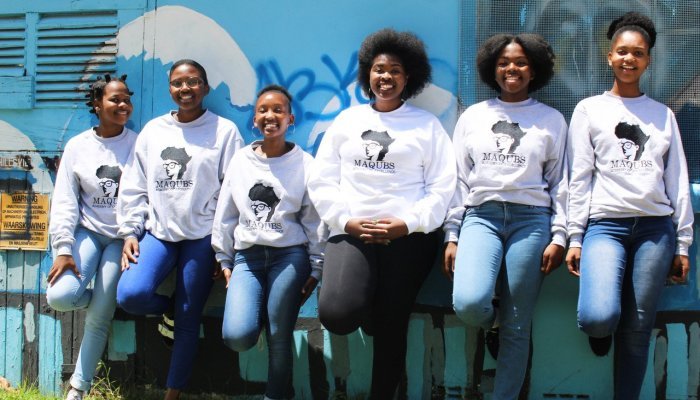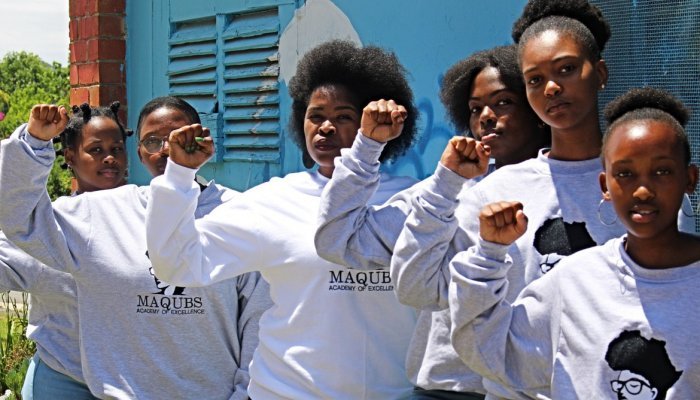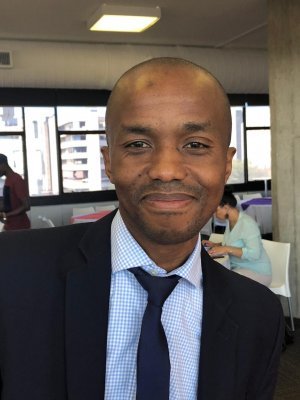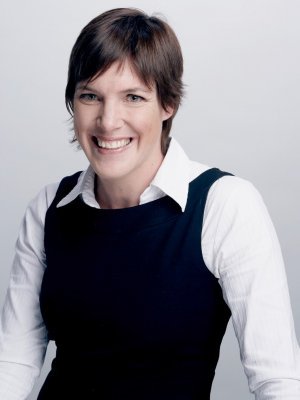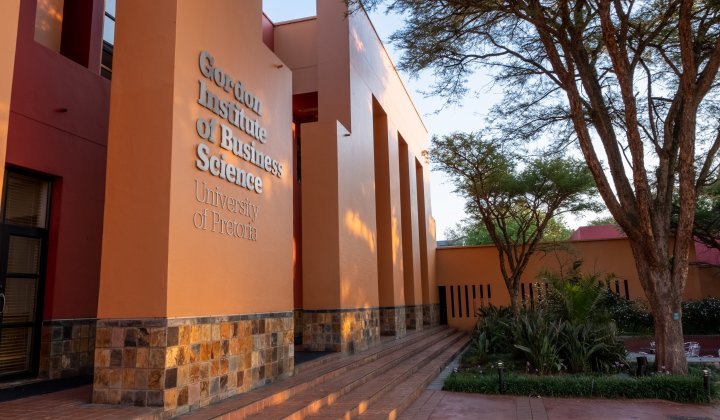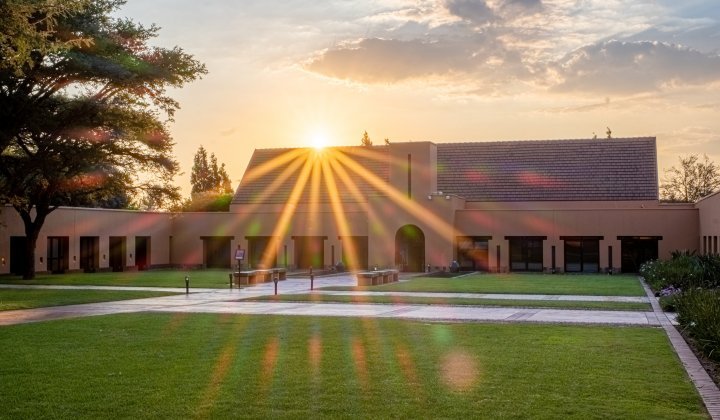According to official estimates, there are over a million jobs in the social economy. This makes it bigger than agriculture and mining, pre-Covid-19. It is a Department of Trade, Industry and Competition (dtic) figure quoted by Kerryn Krige, GIBS lecturer and chief technical advisor at the International Labour Organisation (ILO), and former GIBS Network of Social Entrepreneurs programme manager.
The number could be even bigger. According to the Brand South Africa Annual National Omnibus Survey Findings – Special Report on the Social Economy, released in March, an estimated 3.5 million people currently participate in the social economy, which has a 10.3% higher employment rate than the national average. This, Brand South Africa says, illustrates the nascent power and potential of the social economy as a driver of development, transformation, and job creation.
Krige says social entrepreneurship tackles inequality, creates entrepreneurial opportunities outside of urban areas, and is South Africa’s entrepreneurial approach most appealing to young people, according to the 2015 Global Entrepreneurship Monitor (GEM). “The social and solidarity economy is at the heart of our post-pandemic recovery because it is about making goods and services accessible to those who are struggling to access such goods or services, or who may not access them at all.”
Another often overlooked social and solidarity economy (SSE) benefit, Krige says, is how it bridges the formal and informal sectors. “Our Quarterly Labour Force surveys show us that the informal sector is growing as a result of Covid-19, whilst formal sector work has been decimated. However, we know that people are more vulnerable in the informal sector: more prone to exploitation or longer hours of work or more exposed to precarious work. By being a bridge, the SSE supports South Africa’s rebuild not just by providing goods and services to marginalised communities, but also by bridging our sectors, reducing vulnerability and enabling people to grow their enterprises. There are many myths around informality, which is often associated with illegality, and myths around formality, often regarded as having to be registered and paying tax. But there is so much more here. Formality is about networks, access to finance and support, and creating training programmes for people to attend, which doesn’t compromise their business by taking them away from their day-to-day work. By being a bridge, the SSE can help reduce vulnerability in our informal sector, bridging the distance to formality.”
Defining the social economy
Dr. Molefe Pule, acting deputy director general: competition policy and economic planning at the dtic, says, “We define the social and solidarity economy to include co-operatives, non-profit organisations, stokvels and social enterprises. A social and solidarity economy practitioner, which includes social enterprises, would primarily be focused on addressing a social or environmental challenge. Sustainability of both the solution and the operation is a key focus.”
So, although social entrepreneurship and the social economy are related, the social economy is generally understood to be far broader. According to this broad definition, the Brand South Africa and dtic research shows that social economy practitioners represent 8.6% of the South African population aged 16 years and older. The report notes that, currently, only 21% of social economy platforms are registered. While findings show that registered platforms create two permanent job opportunities on average, unregistered social economy entities tend to involve unpaid volunteers. This, Brand South Africa notes, means that, given the job creation, skills development, and economic empowerment impact it will have on communities, SSE policy should drive regularisation.
Positive findings
The Brand South Africa Annual National Omnibus Survey Findings – Special Report on the Social Economy was developed as a collaboration between the dtic and Brand South Africa, with research conducted by African Response and MarkData.
“The BrandSA report is a household survey, with a n=2,501 sample group. It confirms many of our assumptions of the SSE around altruism and why South Africans engage, but it also gives us some “nitty-gritty” insights – like, that young people above the age of 24 are attracted to the SSE, which supports the findings of the GEM survey and really reinforces the point on the potential of the social economy as an employment space for young people,” says Krige.
“The interaction between data and policy-making is exciting,” adds Pule. “It is important that policies are based on empirical data, and this collaboration is a demonstration of that.”
Highlights from the report include:
- SSE practitioners are equally represented across metro, urban and rural regions.
- Young adults aged 25 to 34 are more involved in SSE practices than other age groups.
- On average, 3.4 people are involved in an SSE business/platform, excluding the business owner.
- Registered SSE businesses are better employers, creating full-time and part-time employment.
- Of SSE practitioners, 80% started their activities without any funding.
- The motivations for SSE activities are often rooted in the desire to make a positive difference in the lives of others, the community, the environment, or broader society.
- The regulatory environment and associated costs to maintain a registered SSE business (including operating licences) may limit activities. Regulation or policy that truly enables SSE activities is therefore required.
- Appealing incentives should be developed to support and enhance SSE activities.
Realising the potential of the social economy
“As the current Covid-19 pandemic has emphasised, social support is an important part of society's functioning,” says Pule. “We have a long history in South Africa of social support – stokvels, NPOs and co-operatives are part of the social fabric of our society. This has left us with a sector that extends to various parts of our communities, with various role-players – both private and public sector – contributing and participating. However, this disaggregated approach, testimony as it is of the diversity of this sector (which is a strength), has also led to an unintended consequence: a lack of coordinated support from the sector.”
The dtic is currently working on an SSE policy in partnership with various government departments, the ILO, the government of Flanders, and the Industrial Development Corporation. “The goal is to ensure integration of SSE organisations within established, and to-be-established, economic value chains, to allow for greater sustainability of both the organisations in the sector, as well as the solutions they bring to the table,” Pule says. “This sector of the economy has the potential to contribute to economic inclusion, as well as inclusive and sustainable development efforts. The BrandSA research also suggested that formalisation of the sector has the potential to unlock more job creation potential.”
Krige says that the SSE white paper already has several key recommendations to encourage access to markets. “We are exploring concepts like a ‘buy social trademark’ – a stamp of approval that marks goods and services as being socially or environmentally beneficial. When we did our first study in 2019, we found that the barriers people experienced were focused on the need for practical skills (cash-flow, for example), a helpful ecosystem and access to resources. The finding on resources and the ecosystem was particularly interesting as this isn’t just about money: people are looking for partnerships and collaboration. Why not repurpose disused buildings in a community into an advice centre? Or what about different ownership models, such as co-operatives, where the people who are benefitting from the work are part of the work?”
She cites Zenzeleni, a community-owned wireless internet service provider, as an example of a different ownership model. Zenzeleni calls itself “South Africa’s first cooperative-owned ISP telecommunications network” and says its model aims to significantly cut costs of telecommunications, retain expenditure within communities as a form of social entrepreneurship, and support the development of a rural digital ecosystem towards bridging the digital divide.
Krige says the white paper legitimises these approaches so that they are no longer on the fringe. “The way we interact through business-for-good becomes full-colour and multidimensional.”
Supporting the SSE
To help maximise the latent potential in the SSE, Pule says it’s important to include SSE organisations in procurement value chains. Secondly, he says, there is a need to create a quality system infrastructure, which would ensure that SSE organisations are able to provide quality goods consistently. This is the idea behind the ‘buy social trademark’ Krige detailed.
There is also a need for the provision of training and capacity-building initiatives tailored to the needs of the sector. “This could include the provision of community practise opportunities, where these organisations are able to interact and learn from each other’s experiences,” he says. “Finally, but by no means least, is the provision of accessible resources.”
Krige urges Acumen readers to be social entrepreneurs. “We need to acknowledge that we operate in a complex system and that a one-dimensional response that seeks profit as the primary return is short-sighted,” she says. “Instead, we should always be looking for a collection of returns that are social, environmental and financial.”
Meet a social entrepreneur
Thina Zukiswa Maqubela, founder of Maqubs Academy of Excellence and statistics lecturer at Rhodes University, began her tutoring business in response to dual needs she observed in Makhanda in the Eastern Cape where parents sought tutoring services for their children and where there was a lack of accessible jobs for university students.
“We started with seven tutors and a handful of learners,” she says. The business now has more than 100 tutors serving learners across South Africa, as well as international students. “We have two premises situated in Makhanda and Gqeberha, where we run face-to face-classes, but the majority of our clients have now been moved online since Covid-19. Our academic support spans across all school subjects, and we offer tutoring specific to the child's needs and particular syllabus. We offer these services not only to individuals but also to organisations and institutions under their CSI projects.”
As the business grew, Maqubela spotted another gap in the market for private accommodation for girls in high school. She then expanded into the property business to offer affordable but decent township accommodation for university students, especially for those funded by NSFAS.
Besides providing student jobs, the business has now employed an administrator, a cook and a cleaner for the hostel.
Maqubela’s dream is to open a branch in every province. “As much as we are able to serve clients online, we are also aware that this isn't an option viable for all South Africans as virtual tutoring requires resources and money. I’d also love to one day open a school and be involved in the training of teachers and tutors on best practises of teaching mathematics and other subjects,” she says.
Visit the Maqubs Academy of Excellence Facebook page for more info.


